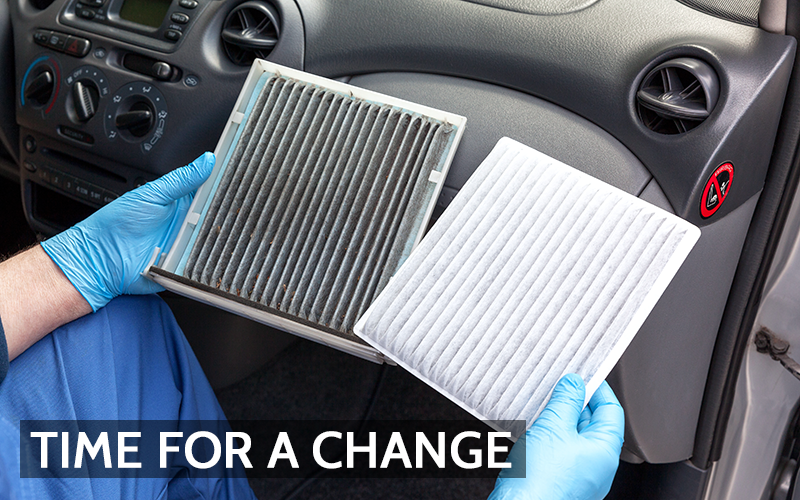Most people spend a surprising amount of time in theor cars. According to AAA, Americans collectively spend over 70 billion hours on the road annually, which averages nearly an hour each day for the typical driver. Given that cars often function as second homes, the air quality inside them plays a significant role in health and comfort. Changing a car’s cabin air filter is a simple yet crucial step to ensure the air breathed while driving is clean and fresh.
Why Change a Cabin Air Filter?
A car’s cabin air filter helps to remove dust, pollen, exhaust fumes, and other pollutants from the air circulating inside your vehicle. Over time, however, the filter becomes clogged with debris, reducing its effectiveness. A dirty or clogged cabin air filter can lead to various issues, including reduced HVAC performance, unpleasant odors, and increased exposure to allergens and pollutants. Regularly replacing this filter keeps the air quality in a vehicle as clean as possible, benefiting not only the occupants’ health but also the overall function of a car’s HVAC system.
How Often Should it be Replaced?
Experts recommend changing a cabin air filter every 12,000 to 15,000 miles, though this can vary depending on the environment and driving habits. For instance, if someone frequently drive on dirt roads or lives in a densely populated area with high pollution, it might be necessary to replace the filter more often. Seasonal changes are also a good time to replace it, as filters tend to accumulate more debris during pollen-heavy spring months and dry, dusty fall seasons.
Benefits of a Clean Cabin Air Filter
- Improved Air Quality: Regular replacement of the cabin air filter blocks pollutants like smoke, smog, and allergens, ensuring a cleaner breathing environment inside a car. This is especially important for drivers with allergies or respiratory conditions.
- Better HVAC Efficiency: When the cabin air filter is clogged, a car’s HVAC system has to work harder to push air through, putting extra strain on the engine. A fresh filter improves airflow, allowing the HVAC system to function efficiently, which can lead to better fuel economy and more effective heating or cooling.
- Reduced Odors: A clogged filter can trap moisture, leading to mold and unpleasant odors inside your vehicle. Regular replacement helps prevent mold buildup, keeping your car’s interior smelling fresh.
- Enhanced Defrosting Ability: In colder months, a clean cabin air filter can improve defrosting capabilities, clearing foggy or icy windows more effectively. This improves visibility and, ultimately, safety.
Need Help with Replacement?
If unsure how to change your cabin air filter, check the car’s manual for guidance or consult a local auto repair shop. Many mechanics offer quick cabin air filter replacement services, and some shops may provide guidance on selecting the right filter for a vehicle. With just a bit of maintenance, a significantly improved air quality can be achieved inside a car and make time on the road as comfortable and safe as possible.


